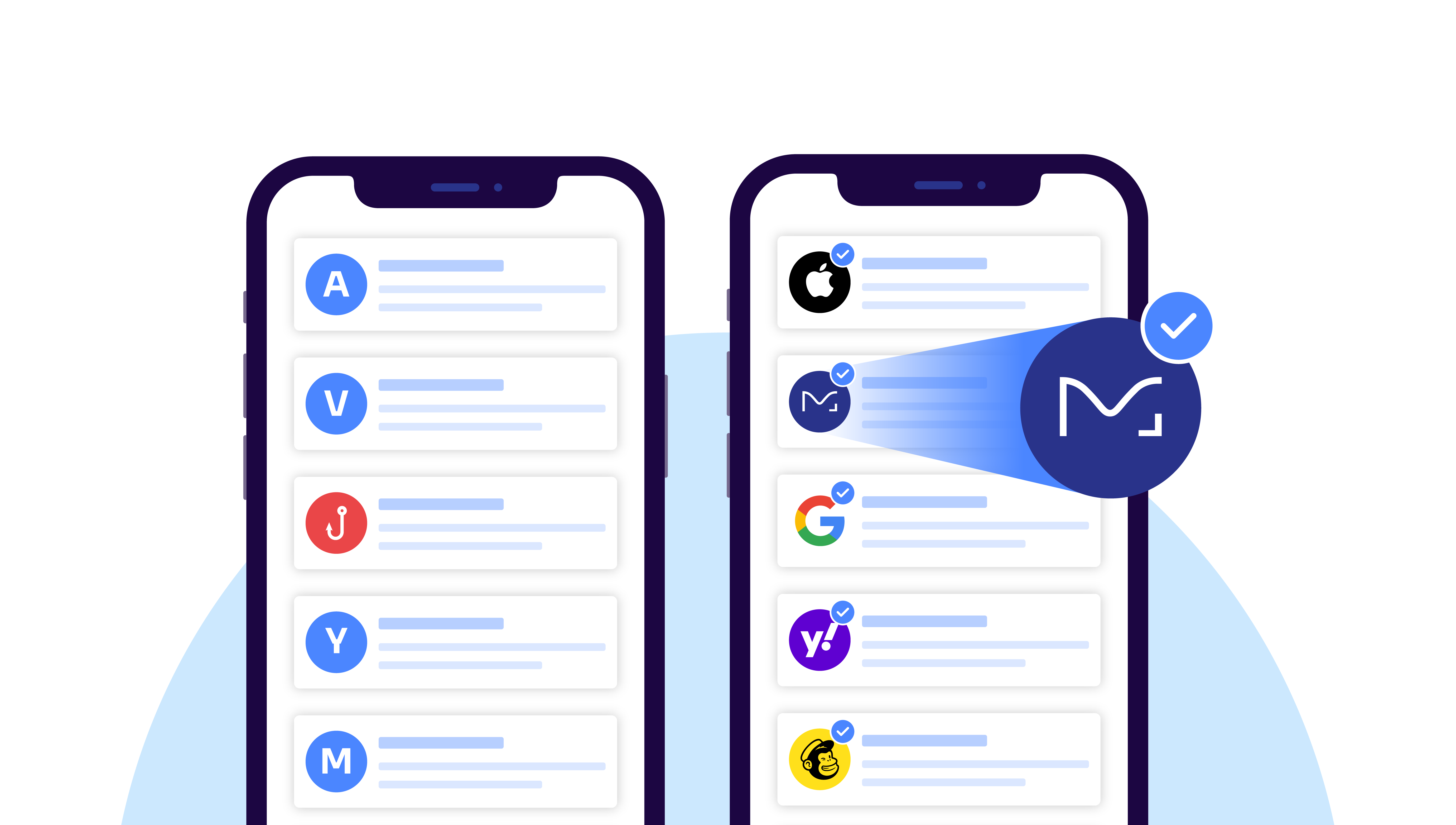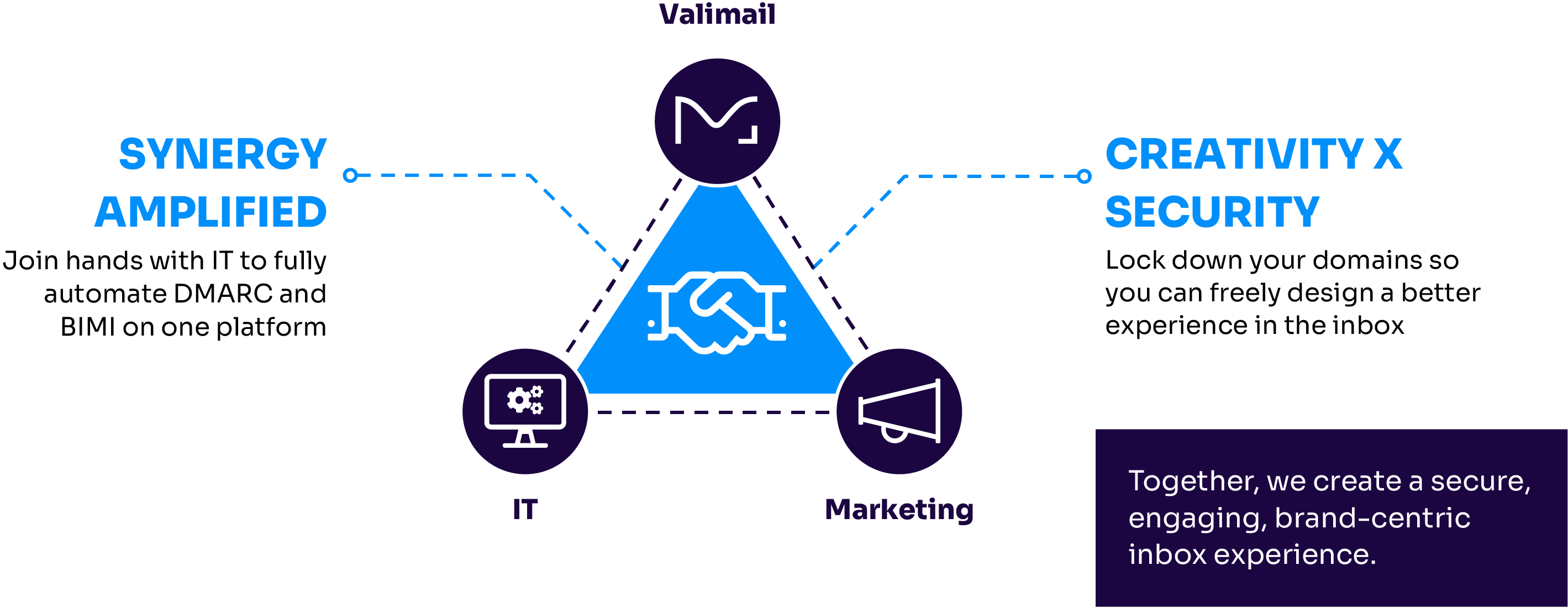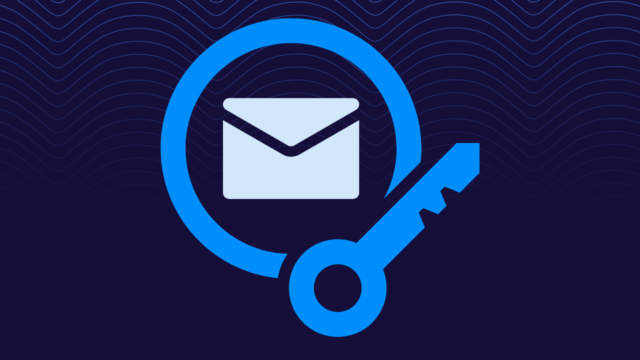Anti-spoofing technology and features might not be sexy, but they can make or break your email program—not to mention your brand’s reputation.
However, let’s face it. Most marketers would rather optimize the user experience rather than guarantee their inbox safety. But what if you could boost your email security and email performance?
Turns out, you can. Security and deliverability go hand in hand—so improving your anti-spoofing measures isn’t just good for your customers, it’s good for your bottom line.
With a proven return on investment, email is the go-to communications tool for virtually every form of modern marketing. But cutthroat competition and a constant battle for consumers’ attention means that a savvy growth-hacking strategy requires being nimble, opportunistic, and data-driven.
It requires building and protecting a trusted brand. Squeezing out a few percentage points of improvement in deliverability or response rates can take months of hard work.
Despite this motivation, most marketers are overlooking a proven way to increase deliverability and protect their brands: Deploying anti-impersonation technologies.
The FBI recently released a statement on how business email compromise (BEC) is a $50 billion scam. This money has been lost to scammers over the past nine years, and because of how prevalent these scams are, it can erode brand trust.
However, for most marketers, this threat—and the deliverability-enhancing potential for technologies that prevent it—is still under the radar.
Below, we’ll walk you through everything you need to know about anti-spoofing protocols to better protect your brand.
What is anti-spoofing?
Anti-spoofing refers to the techniques and measures used to prevent or mitigate spoofing attacks in various forms of digital communication.
Most commonly, this involves email. However, it also extends to websites, SMS, GPS, and caller identification systems.
Spoofing involves falsifying information or masquerading as someone or something else with malicious intent. Anti-spoofing measures are designed to verify the authenticity of the sender or source, ensuring that the information or communication is genuine.
Email anti-spoofing measures
Email anti-spoofing protocols are designed to prevent or reduce email spoofing. These measures help ensure that emails are sent from legitimate sources and help recipients verify the authenticity of the sender’s identity.
Here are some key email anti-spoofing measures:
SPF
SPF (Sender Policy Framework): SPF is an email authentication protocol that allows domain owners to specify which mail servers are authorized to send email on behalf of their domain. SPF records are published in DNS (Domain Name System) and are checked by receiving mail servers to verify the sender’s identity. If the sender’s IP address doesn’t match the authorized servers in the SPF record, the receiving server can treat the email as suspicious or reject it.
DKIM
DKIM (DomainKeys Identified Mail): DKIM is another email authentication method that uses cryptographic signatures to verify that the email’s content hasn’t been tampered with during transmission and that it genuinely originates from the claimed domain. The sending server signs the email with a private key, and the receiving server uses the public key published in DNS to verify the signature.
DMARC
DMARC (Domain-based Message Authentication, Reporting, and Conformance): DMARC is a more comprehensive email authentication standard that builds on SPF and DKIM. It allows domain owners to set policies for how email from their domain should be handled if it fails authentication checks. DMARC also enables receiving servers to send feedback reports to domain owners, providing insights into email delivery and authentication results.
BIMI
BIMI (Brand Indicators for Message Identification): BIMI is a relatively new standard, and it helps enhance email protection because DMARC is needed to implement it. BIMI helps display a sender’s logo next to authenticated emails in supporting email clients. To implement BIMI, organizations need to have proper SPF, DKIM, and DMARC records in place.

How to maximize deliverability with anti-spoofing
Comparing marketing professionals’ responses to those of IT professionals is telling. In general, IT executives are far more concerned about the threat of email impersonation and phishing attacks than their colleagues in marketing.
There is an opportunity suggested by this survey, however: CISOs and CMOs have a shared interest in email deliverability. Marketers want to maximize the effectiveness of their email campaigns, and for IT, making sure that email actually gets through is part of ensuring that it’s working right.
Valimail has found with our customers that setting up a company’s domain with email authentication at enforcement (using DMARC) — and maintaining it — can have a significant positive impact on deliverability.
In extreme cases, when a company’s deliverability has been severely impacted by a flood of impersonations, email authentication can literally restore the company’s ability to send outbound emails.
A similar effect was visible when the U.K. government deployed email authentication across its domains, starting with the tax-collection service, HMRC. Doing so stopped over half a billion fake emails — but it also increased HMRC’s deliverability rate for legitimate emails from 18% to 98%. Once the flood of phish stopped, ISPs stopped blocking messages from its domain. Simple as that.
Invest in anti-impersonation technologies
What does that mean for marketers? Anti-impersonation technologies can help their IT colleagues ensure that emails actually get to their intended destinations while increasing the ROI for their own marketing emails at the same time.
What does it mean for IT security? Anti-impersonation technologies can help their marketing colleagues defend their hard-earned brand trust while putting a stop to the #1 security vector for phishing.

And both will be better able to validate their efforts by showing a definitive positive impact on the company’s revenue. Nothing makes a CEO’s heart beat faster than proving a cross-functional initiative had a positive outcome that moved the needle further into the green.
Team up, and these two departments can solve pressing problems facing both of them. And it all starts with email authentication.

